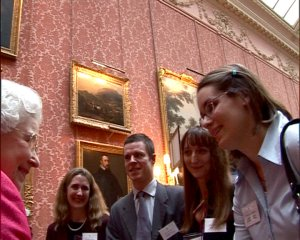News
Professor Denis Mareschal recently gave a webinar for Learnus, a charity specialising in bringing research innovations in neuroscience to educators. He discusses lessons learned from 4+ years of studying young participants in our incredible ToddlerLab. Watch here: https://www.youtube.com/watch?v=wHQhgFSLHAo

Watch Channel 5 to see a family visiting the Babylab and findings from the STAARS study! Professor Emily Jones discusses studying autism and what it means with presenter Dr Claire Taylor. https://www.channel5.com/show/are-you-autistic

Our first paper on brain activity in mothers and their children in the Toddlerlab has just been published! We found when mums and kids solve puzzles together, their brains synchronise. Read more here: https://direct.mit.edu/imag/article/doi/10.1162/imag_a_00509/128247/Analytical-pipeline-optimisation-in-developmental
Check out Dr Chiara Bulgarelli's "5-Minute" podcast interview, where she explains how and why we use virtual reality to study the development of socialisation and social preferences in young children. https://www.youtube.com/watch?v=fJzGcs-MgA0
We are delighted to see the publication the Royal Foundation Centre for Early Childhood's Shaping Us Framework. The Framework describes core social and emotional skills in an accessible way, which everyone in society can use and understand – as the basis for action. Social and emotional development begins in early childhood, and this period provides a golden opportunity to nurture these skills – which then continue to grow throughout our lives. Getting this right could have a truly profound impact on the future of individuals, and our society. Our Prof Emily Jones wrote an essay supporting the launch, focusing on the importance of communication: https://centreforearlychildhood.org/news-insights/guest-essays/communic…

Calling all Persian speakers! The Babylab & Toddlerlab, Prof Emily Jones and Dr Jannath Begum Ali were featured on BBC Persia about their work studying ASD in babies and children. From 17:20 in, https://www.youtube.com/watch?v=C-elcd1Nv9M

The Babylab & Toddlerlab DOT study and Lumo brain imaging device were featured on ITV news with Martin Stew! We had the pleasure of hosting ITV news while they filmed our collaborator Liam Collins-Jones and Prof Emily Jones, not to mention our top infant scientist and very supportive mum! Read the press release or watch on ITV

CBCD Lecturer Ori Ossmy was filmed in the ToddlerLab for BBC's 'Brain Hacks' documentary series. Check out his insight on why babies are the best learners, even compared to Chat GPT! https://www.bbc.com/reel/video/p0fc9tlx/chatgpt-why-we-re-still-smarter-than-machines
Published research from CBCD PhD student Aislinn Bowler involving assessments of over 9500 children identifies link between fine motor skills in toddlers and later GCSE scores and behaviour. Fine motor skills in young children, for example drawing, folding paper and block building, may play an important role in the pathway between infancy and later educational and behavioural outcomes in primary and secondary school. Importantly, the researchers found preschool fine motor skills were linked to better GCSE scores and fewer behavioural problems in childhood and adolescence. Read more here: Birkbeck Press Release. Full article here: Biological Psychiatry
Birkbeck filmed behind the scenes in our ToddlerLab to celebrate the University's 200th birthday! Listen to our professor Emily Jones discuss the aims of the ToddlerLab, and see a sneak peek of one of research fellow Chiara Bulgarelli's studies in our virtual reality lab, the CAVE! https://www.youtube.com/watch?v=PHr3rva-_Ps
The Guardian article "Adults’ penchant for Van Gogh mirrored in babies" covered research from the University of Sussex which our centre director, Professor Denis Mareschal gave expert comment on. “In a nice nod to Goldilocks, infants prefer to explore stimuli that are neither too simple nor too complex to decipher, spending the longest time exploring stimuli that are ‘just right’”. https://www.theguardian.com/artanddesign/2023/aug/02/adults-penchant-fo…
CBCD research fellow Chiara Bulgarelli is interviewed by BabyBrains for their WoW podcast. Click the link to learn more about Chiara's research with toddlers and the development of empathy. https://www.youtube.com/watch?v=7rHjgkomy_o
The ToddlerLab recently had a visit from a reporter for The Londonist - an online publication aimed at Londoners. Read Charlotte's description of our labs and what we do here: https://londonist.com/london/family/toddlerlab
CBCD Phd student Claire Essex and Professor Tim Smith were filmed at the BabyLab for Konnie Huq's new BBC One TV show "Kids' TV: The Surprising Story". Full episode available on iPlayer, look out for Claire and Tim at 9'10" in! https://www.bbc.co.uk/programmes/m001djpv
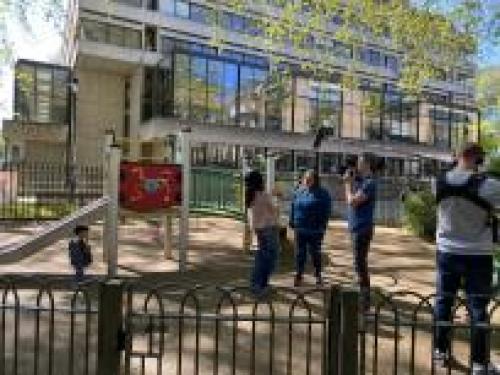
The ToddlerLab was pleased to showcase our new research labs and facilities with a visit from Learnus, a charity specialising in bringing research innovations in neuroscience to educators. They created a video so you can learn more about why we created the ToddlerLab and what we hope to achieve from our director, Denis Mareschal. The video is a great introduction to our exciting new labs! Watch here.
Professor Emily Jones' flagship research into Autism was featured in 'Autism Eye'. Click here to read more!
Prof Forrester, taking the aim of public engagement to the max, will be showcasing her research on great apes and the development of language in humans at Glastonbury's 'Science Futures' area. This gives festival-goers insight into the role of science in identifying environmental and societal issues as well as the scientists working to find solutions. Read more here
We are happy to announce our ToddlerLab is open and ready to showcase our innovative research with babies, toddlers and children! Learn more here or see a recent article in the Evening Standard.

We see what’s happening in their brain: inside the ToddlerLab
Read more: https://www.theguardian.com/society/2022/jan/07/inside-the-toddlerlab-london-research-wearable-tech
A new kind of brain scan is letting us understand how toddlers think
Listen to CBCD Professor Tim Smith chat to film critic Robbie Collin about how our brains process and react to films of varying format, from Tik Tok to wide screen. From 34'50" https://www.bbc.co.uk/sounds/play/m0014wnj
"Is my toddler smarter than a squirrel?" - read the article to find out! https://www.thetimes.co.uk/article/is-my-toddler-smarter-than-a-squirre…
In this Guardian article you can read about how we are harnessing cutting edge wearable tech to investigate development through toddlerhood and beyond at the new Wohl Wolfson Toddlerlab.
Our brand new ToddlerLab was recently featured in The New Scientist. Check out this great video https://www.youtube.com/watch?v=OAqIklBFagE to see how we are utilising technological advances to understand what is going on in the minds of young children.
The article is available to read here https://www.newscientist.com/article/mg25233594-400-a-new-kind-of-brain-scan-is-letting-us-understand-how-toddlers-think/
CBCD's Professor Gillian Forrester is interested in the early development of motor skills as a precursor to language development. Her amazing research investigating how great apes solve puzzles may shed insight into how human baby and children's motor skills and language develop. Check out the video here!
CBCD researcher Dr Ana Portugal was featured in this Verywell Family article discussing the latest findings from The TABLET Project.
https://www.verywellfamily.com/do-touchscreens-make-toddlers-more-distractible-5119381
On 17th February 2021 the Birkbeck Babylab featured in the award-winning children’s television series ‘Operation Ouch!’. The episode showcased current cutting-edge research Louisa Gossé is conducting at the BabyLab, examining what happens in babies’ brains during sleep. Watch on BBC iPlayer



New research from the CBCD shows that measuring the brain activity of babies could help us predict cognitive development from toddlerhood to childhood. Where there are concerns, this would enable interventions to be made earlier, leading to better outcomes in later life. Click here to read the article in Nature or here to read more from Birkbeck.
16/5/2020 "Toddler lab aims to decode young minds" https://www.thetimes.co.uk/article/toddler-lab-aims-to-decode-young-minds-7vkmkrnj9
24.03.2020
Struggling to work from home while taking care of your children at the same time? Listen to our very own Prof Emily Jones for tips and advice! Click here to listen from about 45:00.
4 September 2019
Watch this video to learn about the important work that Dr. Gillian Forrester is doing. You can take part until the 30th of September by visiting her and her research team at the Science Museum here in London! All ages are welcome, its free to attend and open Tuesday to Saturday. Also check out their twitter: @Me_Human !!
16 - June 2019
Rob Hargreaves, a former student of CBCDs own Natasha Kirkham is currently cycling 5000km across Europe from Paris to the Arctic circle to Berlin to raise money for our new toddler lab. Want to know more about him and how his journey is going?
Follow him on twitter: @HargreavesRJ / #RobsBikeRide and read this article http://blogs.bbk.ac.uk/george/2019/06/14/24-hours-until-the-start-of-my… .
Inspired by Rob's action to help the progress of developmental science?
You don't have to cycle 5000km to make a contribution! Simply use this link and donate: ToddlerLab.
19th March 2019
Dr Georgina Donati and Dr Annie Brookman-Byrne have created a great short film about the adolescent brain. They are currently collecting tips and strategies from teachers that draw on this science so that these can be shared. You can see the film and give feedback through the Centre for Educational Neuroscience website. You can also follow them on twitter @teenbrainfilm.
29 January 2019
New research from Birkbeck, the University of Lincoln, Imperial College London, and the Swiss Tropical and Public Health Institute in Basel, Switzerland shows an association between various health risks and screen time before bed. Read more about it here.
May 2018
This article discusses the purpose of Birkbeck's most recent project: building the world's first ToddlerLab!
Read more about it here: https://thepsychologist.bps.org.uk/volume-31/may-2018/room-roam-new-tod…

25 March 2013
This article gives a brief description of what happens in the Babylab, including overarching goals and research findings.
Read more about it here: https://www.wired.co.uk/article/this-little-piggy-went-to-the-lab

24 October 2012
The Independent discusses the Baby Laughter project, which investigates what makes babies laugh and smile, giving us an insight into their understanding of the world.
Read more about it here: https://www.independent.co.uk/news/science/revealed-the-serious-science…

28 March 2018
A visit to the babylab from a parent's perspective; this article covers methodologies used in the Babylab, including functional near infrared spectroscopy (sNIRS) and eye-tracking.
Read more about it here: http://www.bbc.com/future/story/20180327-the-secret-world-of-babies


18 June 2015
The TABLET project, led by Dr Tim Smith, looks at how the use of touchscreen devices may influence infants' development.
Read more abut it here: https://www.theguardian.com/membership/2015/jun/18/guardian-live-should…
Here's a link to the project's website: http://www.bbk.ac.uk/tablet_project/main
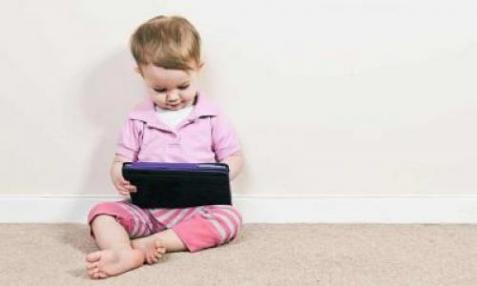
4 November 2015
This article provides a nice description of a typical visit to the Babylab.
Read more about it here: https://www.nature.com/news/the-big-baby-experiment-1.18701
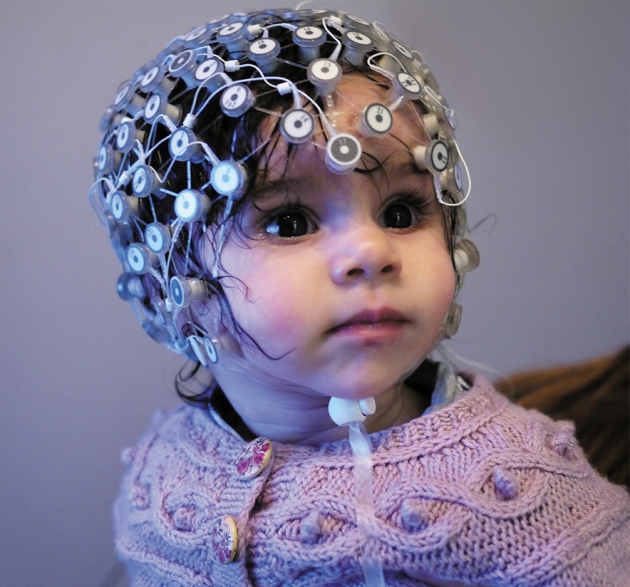

19th November 2018
CBCD Faculty, Drs Emily Jones and Tim Smith, will be appearing in the first episode of Babies: Their Wonderful World on Monday 26th November at 21:00 on BBC2. This is the first of a three-part series for which Tim acted as the science consultant. CBCD present and ex members feature highly throughout: Dr Sara Lloyd Fox is in the second episode, and Dr Emily Jones also appears again.
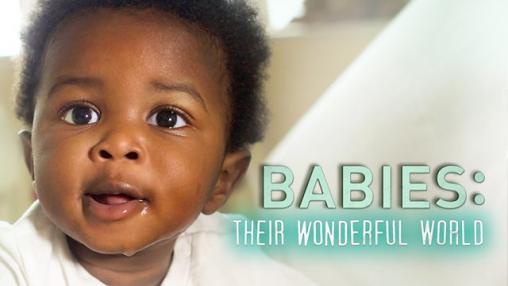
30th October 2018
Since recording the first brain images of babies in Africa, Professor Clare Elwell, part of the Brain Imaging for Global HealTH (BRIGHT) network, of which Birkbeck is a member, has been leading a pioneering study to increase our understanding of early brain development. In a new article, Clare discusses bringing a new imaging technology to a remote Gambian village, and how it could help babies suffering from malnutrition to reach their full potential.
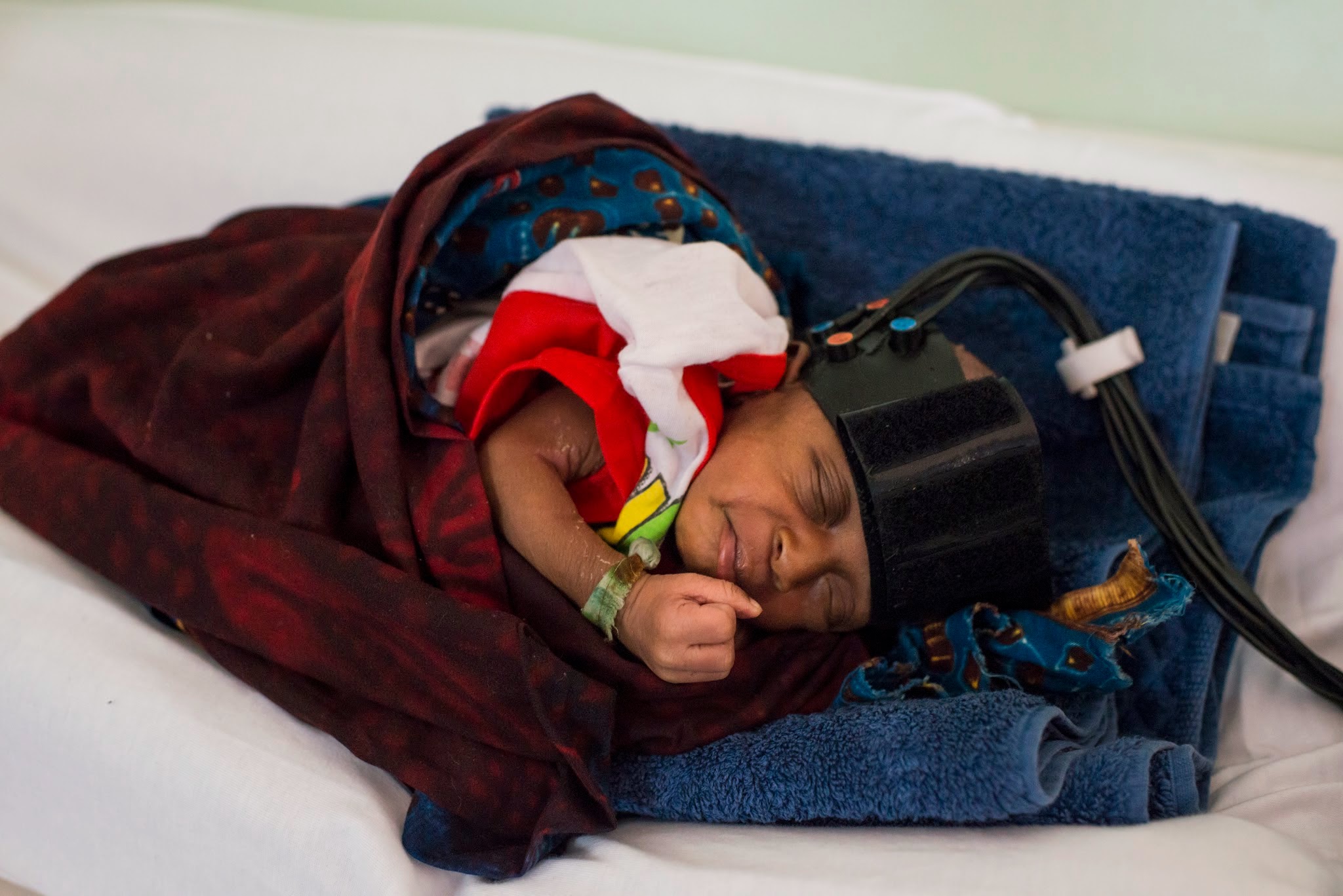


21st September 2018
On 21st September, over 100 researchers, along with parents taking part in the British Autism Study of Infant Siblings (BASIS), attended the BASIS annual scientific meeting, kindly sponsored by The Waterloo Foundation. This year, our special topic was motor development in neurodevelopmental disorders. Read more about it here.
17th September 2018
The Babylab’s Dr Sarah Lloyd-Fox has won the prestigious Wiley and British Academy 2018 prize in Psychology for her impressive body of research studying infants across the globe. The prize is awarded every two years for promising early career work by a UK based psychologist. Congratulations Sarah!
Click here for the full interview: https://hub.wiley.com/community/exchanges/discover/blog/2018/09/16/meet-the-winner-of-the-2018-wiley-and-british-academy-prize-in-psychology?et=notification.mention
Click here to read more about her research: http://www.cbcd.bbk.ac.uk/people/scientificstaff/sarah-lloyd-fox
Understanding children’s cognitive development – past, present and future
27-28 March 2018
For recordings of select speakers click here.
The CBCD was awarded the prestigious Queen's Anniversary Prize for Higher Education.
